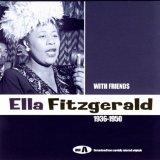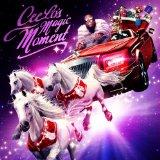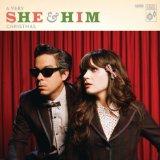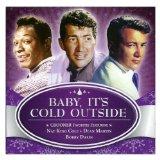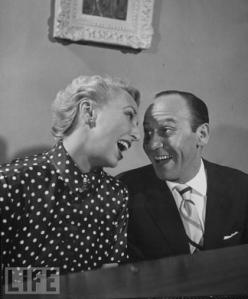
It’s the holidays – that all-encompassing term we use to describe this time of year when we celebrate Thanksgiving, Christmas, Hanukkah, New Year’s, Kwanzaa, the winter solstice or whatever else you wish to add to your holiday list. The more the merrier. But when it comes to popular music, Christmas is by far the most significant holiday of the season. Christmas music is more than a genre of popular music; it has become an entire industry unto itself. Christmas songs cover virtually all aspects associated with the holiday, from the specific to the seasonal at large. From sacred songs about the birth of Jesus to silly songs about snowmen and Santa, to songs about winter weather or winter romance. Virtually every culture that celebrates Christmas has their own offering to the genre, from finding humor in ethnic stereotypes such as “Donde Esta Santa Clause” or “Dominick the Italian Christmas Donkey,” to specific regional American subcultures like Alan Jackson’s “Honky Tonk Christmas” or James Brown’s “Santa Clause Go Straight to the Ghetto.”
“Christmas” is a feeling bigger than the specific day and, as a federal holiday, the atmosphere created by the general public discourse this time of year is inclusive for all Americans to enjoy. This is as true with music as with anything. One certainly does not need to be a Christian – or religious in any way whatsoever – to enjoy Dean Martin crooning “The Christmas Blues” or Charles Brown pleading his baby to “Please Come Home For Christmas” or The Ronettes inviting you to take a “Sleigh Ride,” or Judy Garland’s heart-wrenching “Have Yourself a Merry Little Christmas” from Meet Me In St. Louis – one of American cinema’s greatest moments. Somehow, “Have Yourself a Merry Little Holiday” just lacks the same punch.
While it remains a sacred religious observation to many million Americans, as a cultural phenomenon, Christmas has transcended its religious origins to become also something broader. It is about family and fellowship with our neighbors. It is about having a generous and a light heart in the face of a heavy and selfish world, even if just for a few weeks a year. It is about reminding ourselves not to lose sight of the joy and innocence of childhood, even as we forge through the cold realities of adult life. We do this by creating a sense of wonder and magic through specific rituals, decorations and music. Underscoring this point, consider that the two most popular Christmas songs – “White Christmas” and “The Christmas Song” – were written by Jewish songwriters (Irving Berlin and Mel Torme, respectively). These songs are essential additions to the Great American Songbook, and they, like Christmas, exist for all Americans to embrace and share.
There certainly isn’t any shortage of funny Christmas songs either, so let’s look at one of the more comical, endearing and recorded songs associated with Christmas and the holidays. “Baby It’s Cold Outside” never mentions either word, but it has come to be considered a staple of the genre. The song was written in 1944 by celebrated songwriter Frank Loesser, who composed the music and lyrics for Guys and Dolls, as well as other standards from Broadway productions such as “Heart and Soul” and “On A Slow Boat to China.” Loesser composed the tune to be sung as a duet at Christmas parties with his wife. The setting of a warm, cozy apartment keeping out a cold, wintry landscape fits seamlessly with the juxtaposition of coldness and warmth that is the essence of the holiday season. But it isn’t some sweet musical Norman Rockwell painting. “Baby It’s Cold Outside” is playful, funny and a bit dirty.
The premise of the song is simple. A man is entertaining a female visitor. In the interest of decorum and propriety, she insists it is time for her to be going. Wishing her to stay for almost certainly nefarious reasons, the man meets every one of her protests with the fact that it’s cold outside and, thus, she really ought to stick around a bit longer till the storm dies down. Here, have another drink while I put on some records. In the original sheet music the two vocal parts are delineated as “wolf” and “mouse.”
Mouse: The neighbors might think
Wolf: But, baby, it’s bad out there
Mouse: Say, what’s in this drink?
Wolf: No cabs to be had out there
Mouse: I wish I knew how -
Wolf: Your eyes are like starlight now
Mouse: – to break the spell
Wolf: I’ll take your hat, your hair looks swell
Mouse: I ought to say no, no, no sir
Wolf: Mind if I move in closer?
Mouse: At least I’m gonna say that I tried
Wolf: What’s the sense of hurtin’ my pride?
Mouse: I really can’t stay
Wolf: Oh, baby, don’t hold out
Together: Ah but it’s cold outside
The performances by Loesser and his wife at parties in the 1940’s became hugely popular. 1949 saw the first commercial release of the song when Loesser finally licensed it for the film Neptune’s Daughter. [Purchase here: Neptune's Daughter] In the film, Ricardo Montalbán and Esther Williams perform the duet, followed by Red Skelton and Betty Garrett doing a comical take by reversing the roles of wolf and mouse.
The song won the Academy Award for Best Original Song that year, and in 1949 the major labels all rushed out duets featuring their stable of stars. Columbia was the first to release their version by Dinah Shore and Buddy Clark. The day after that session, Johnny Mercer and Margaret Whiting recorded their version for Mercer’s Capitol Records.
RCA followed a month later with Don Cornell and Laura Leslie and Decca wasn’t far behind putting out the first African-American take on the song featuring Ella Fitzgerald and R&B pioneer Louis Jordon. A personal favorite by Pearl Baily and Hot Lips Page was released on Columbia’s budget label, Harmony Records, later that same year.
The first year of release also saw the first parody as country music comedy duo Homer and Jethro recorded a hillbilly parody of the song with comedienne June Carter (who was born into country music royalty as part of the legendary Carter Family, and later became Johnny Cash’s second wife and soul mate). That same year, Bing Crosby performed an unorthodox rendition on a radio broadcast featuring a most unlikely duet partner as the mouse – actor Jimmy Stewart.
Dean Martin included it on his 1959 album A Winter Romance. Rather than performing it as a duet with a female vocalist, Dino’s bottomless charm requires an entire female chorus.
The 1961 version by Ray Charles and Betty Carter, in addition to being one of the more sultry arrangements, was an R&B hit and the first of only two versions to break the Billboard Hot 100 chart. It’s also the same arrangement used by Cee Lo Green and Christina Aguilera on Green’s current Christmas release, Cee Lo’s Magic Moment.
In the 2003 film Elf, Will Ferrell sneaks up on Zooey Deschanel singing to herself in the shower and begins to harmonize, much to her eventual surprise.
There are literally hundreds of versions of, and cultural references to, this song. Over the years it has proven to be one of the most recorded Christmas songs and to this day the biggest acts in pop, R&B, jazz and country music continue to release their takes, often resulting in unlikely pairings – from Dolly Parton and Rod Stewart to James Taylor and Natalie Cole to Anne Murray and Michael Bublé. In 2010, the television show Glee unveiled the first same-sex rendition (not counting Bing and Jimmy Stewart’s parody from 1949), proving that flirtation and pursuit are instinctive human traits that will always be relevant in virtually all societies.
There is also an undeniable, if increasingly dissatisfying, commercial aspect to Christmas. From a marketing standpoint, “Baby It’s Cold Outside” is gold. The duet format allows for cross-marketing musical pairings, essentially doubling the size of the potential audience, introducing newer artists to established fan bases (and vice versa), and often crossing genres and formats. In that way, it is a perfect Christmas song, creating a common musical language relatable to anyone who has wooed or been wooed, or has simply been caught up in the romantic wonder of the season.
(c) 2013, Matt Powell
Purchase gifts or other material through Amazon to help support our site. Click on links below:
